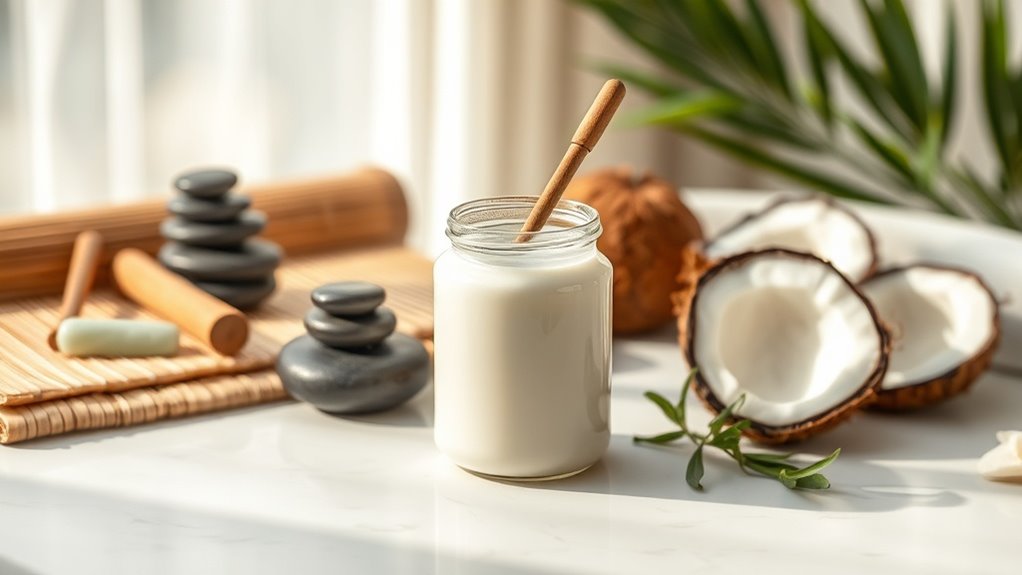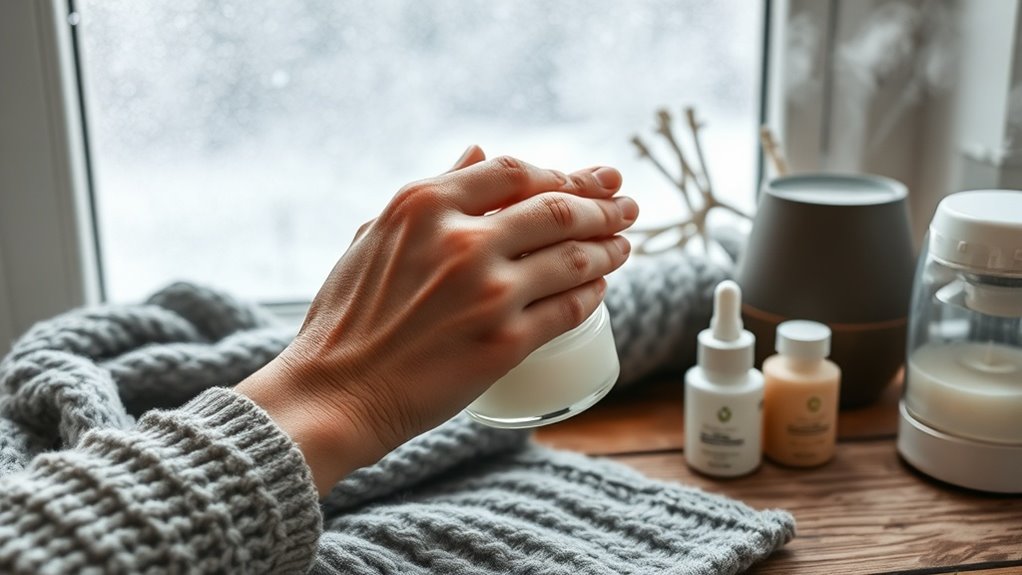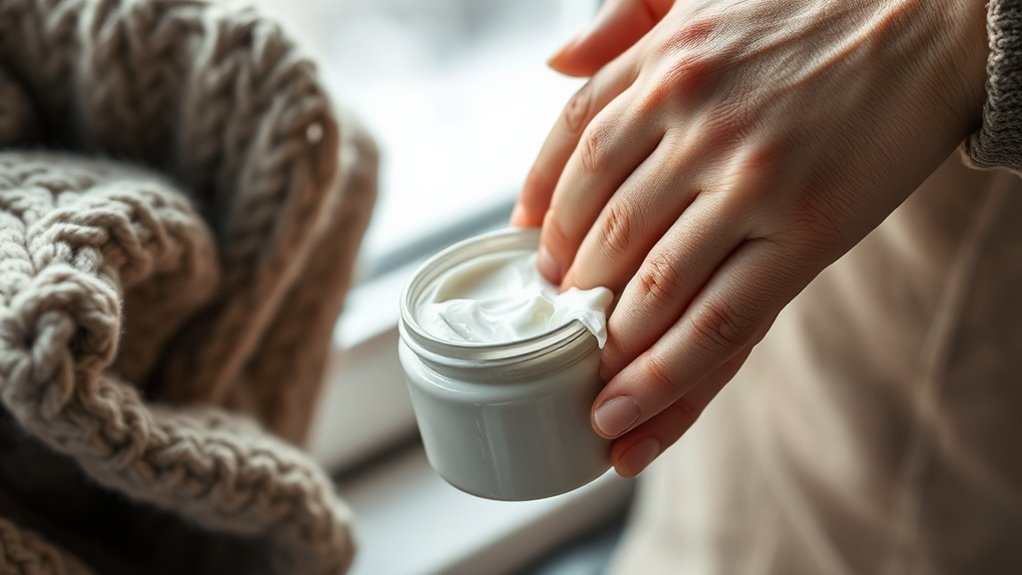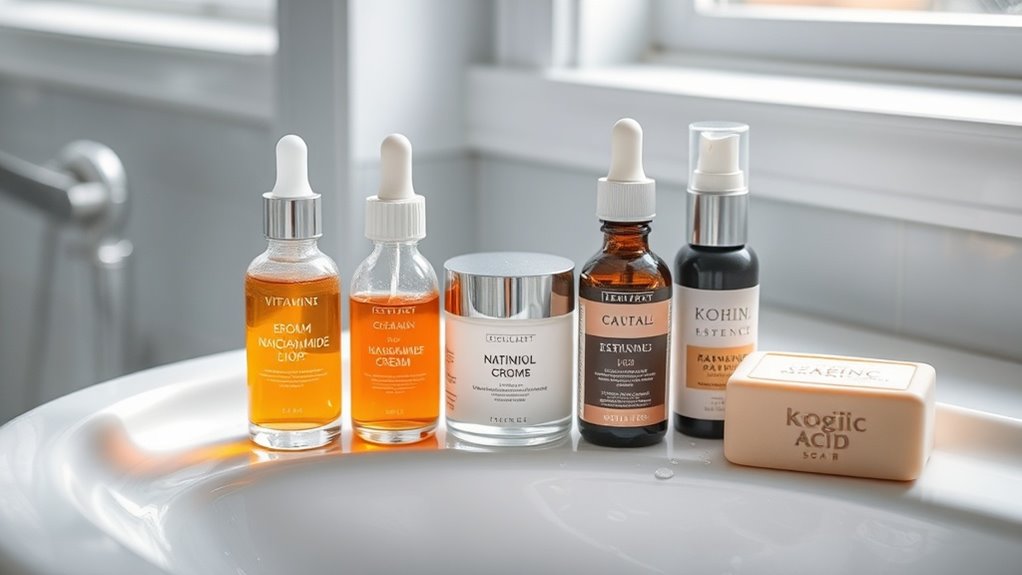What to Do for a Sore Throat Without Going to the Doctor
You can effectively treat a sore throat at home using several proven methods. Start with salt water gargles and honey-based remedies for natural relief. Take over-the-counter pain relievers like ibuprofen or acetaminophen to reduce inflammation and discomfort. Stay hydrated with warm liquids, and use throat lozenges for temporary numbness. Practice good hygiene and get adequate rest to support healing. Discover additional remedies and preventive measures to speed your recovery.
Common Causes of Sore Throat
Most sore throats stem from viral infections like the common cold, flu, or COVID-19. When you’re seeking sore throat remedies for adults, it’s important to understand what’s causing your discomfort.
Bacterial infections, particularly strep throat, can trigger intense throat pain and require antibiotics. Environmental factors like dry air, allergies, or acid reflux may also irritate your throat tissues.
Smoking, excessive alcohol consumption, and prolonged voice use can cause inflammation too. Additionally, common bacterial infection such as strep throat may necessitate medical intervention, especially if symptoms worsen.
While less common, throat cancer or enlarged thyroid glands might be underlying causes, especially if symptoms persist beyond two weeks.
Salt Water Gargle and Natural Remedies
You can quickly prepare an effective salt water gargle by dissolving 1/4 teaspoon of table salt in 8 ounces of warm water. Natural honey, either mixed into warm tea or taken by the spoonful, provides a protective coating while reducing throat inflammation and pain. Essential oils like eucalyptus, thyme, and peppermint can offer relief when properly diluted and used in steam inhalation or as throat drops. Additionally, gargling with salt water can lower the risk of upper respiratory infections significantly.
Making Salt Water Solution
One of the most effective and time-tested remedies for a sore throat is a simple salt water solution.
This helps reduce swelling and fight infection through osmosis.
To make an effective salt water gargle solution, you’ll need to follow these precise measurements and steps:
- Mix 1/4 to 1/2 teaspoon of regular table salt into 8 ounces (1 cup) of warm water
- Stir until the salt completely dissolves
- Test the water temperature – it should be warm but not hot enough to burn
- Use immediately while the solution is still warm for maximum effectiveness
Don’t swallow the solution after gargling; always spit it out.
Natural Honey Throat Soothers
Raw honey serves as a powerful natural remedy for sore throats due to its antimicrobial and anti-inflammatory properties. You can consume one tablespoon of raw honey directly or mix it with warm water several times daily to coat and soothe your irritated throat tissues.
For enhanced relief, combine honey with other natural ingredients. Mix one tablespoon of honey with fresh lemon juice to boost vitamin C and antibacterial effects. You can also blend honey with grated ginger or ground cinnamon to create a therapeutic paste.
These combinations help reduce throat pain and fight infection while supporting your immune system’s natural healing process.
Essential Oils for Relief
Several essential oils offer powerful relief for sore throat discomfort through their antimicrobial and anti-inflammatory properties.
When used properly, these concentrated plant extracts can help reduce pain and fight infection.
For effective sore throat treatment, try these proven essential oils:
- Tea tree oil – Mix 2 drops with carrier oil for antimicrobial gargle
- Eucalyptus oil – Diffuse or add to steam inhalation for respiratory relief
- Thyme oil – Blend with honey for bacterial fighting power
- Peppermint oil – Apply diluted to neck for cooling pain relief
Always dilute essential oils before use and avoid swallowing them directly.
Over-the-Counter Treatment Options
Multiple over-the-counter medications can effectively relieve sore throat discomfort. You’ll find pain relievers like acetaminophen, ibuprofen, and aspirin that reduce inflammation and ease throat pain. Throat lozenges containing benzocaine or menthol provide temporary numbing and cooling effects.
Throat sprays with phenol offer targeted relief by coating irritated tissues. Zinc lozenges may help reduce the duration of throat pain, especially when taken at the first sign of discomfort. Natural remedies like warm water mixed with honey and apple cider vinegar can also provide immediate relief from throat irritation.
For severe cases, you can combine oral pain relievers with topical treatments. Choose sugar-free options if you’re watching your sugar intake or have diabetes.
Hydration and Dietary Tips
Proper hydration plays an essential role in soothing an irritated throat and promoting healing.
You’ll want to consume plenty of warm liquids like herbal tea, broth, or water to keep your throat moist and help thin mucus secretions.
Choose foods and drinks that can provide comfort and support recovery:
- Honey-infused warm beverages to coat and soothe the throat
- Cold foods like ice cream or popsicles to reduce inflammation
- Vitamin C-rich smoothies to boost immune function
- Salt water gargles to reduce swelling and kill bacteria, which can lead to significant relief from throat pain.
Avoid acidic, spicy, or rough-textured foods that might further irritate your throat tissue.
Prevention Methods and Best Practices
You’ll greatly reduce your risk of sore throats by practicing good hygiene habits like frequent hand-washing and avoiding touching your face.
Stay clear of known triggers such as smoking, excessive alcohol consumption, and prolonged exposure to dry or cold air that can irritate your throat tissue.
Fortify your immune system through regular exercise, adequate sleep, and a diet rich in vitamins C and D to build natural defenses against throat infections. Additionally, boosting the immune system with vitamin C-rich foods such as oranges and strawberries can further enhance your body’s defenses.
Healthy Hygiene Habits Daily
Maintaining a consistent hygiene routine serves as your first line of defense against developing a sore throat.
You’ll reduce your exposure to harmful bacteria and viruses by implementing proper daily habits.
Essential hygiene practices to protect your throat include:
- Wash your hands frequently with soap and warm water for at least 20 seconds
- Keep your toothbrush clean and replace it every 3-4 months
- Don’t share personal items like cups, utensils, or lip products
- Cover your mouth when coughing or sneezing, using your elbow rather than your hands
Remember to maintain these practices year-round, especially during cold and flu season.
Avoid Common Trigger Factors
Beyond basic hygiene practices, understanding and avoiding common throat irritants can greatly reduce your risk of developing a sore throat.
Stay away from secondhand smoke and avoid tobacco products, as they inflame your throat tissues.
Limit your exposure to air pollution, chemical fumes, and harsh cleaning products.
Don’t strain your voice by yelling or speaking loudly for extended periods.
Keep your home’s humidity balanced – too dry or too humid conditions can irritate your throat.
If you have allergies, identify and minimize contact with your triggers, whether they’re pollen, pet dander, or dust mites.
Strengthen Your Immune System
A strong immune system serves as your body’s first line of defense against throat infections and other illnesses.
You can naturally boost your immunity through specific lifestyle changes and dietary choices.
- Get 7-9 hours of quality sleep daily to allow your body to produce infection-fighting proteins
- Exercise moderately for 30 minutes, 5 times weekly to enhance immune cell circulation
- Consume foods rich in vitamin C, D, and zinc, including citrus fruits, fatty fish, and nuts
- Stay hydrated by drinking 8-10 glasses of water daily to help flush out toxins
Incorporate these practices consistently to maintain peak immune function and reduce your susceptibility to throat infections.
When to Seek Medical Attention
While many sore throats can be treated at home, certain symptoms require immediate medical attention.
Seek emergency care if you experience severe difficulty breathing, drooling, or inability to swallow.
Visit your doctor if your sore throat lasts longer than a week, you develop a rash, or your temperature exceeds 101°F (38.3°C).
Additional warning signs include blood in saliva, visibly swollen lymph nodes, or one-sided throat pain.
If you’re unable to open your mouth fully or notice white patches on your tonsils, these could indicate strep throat or other serious infections that need antibiotics.
Don’t delay treatment if these symptoms occur. Remember that sore throats are often caused by viruses or bacteria, and timely intervention can prevent complications.




